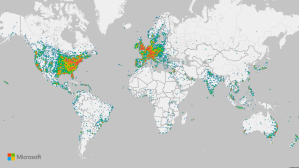UK launches cyber-operation against Russian disinformation on COVID-19 vaccine, report says

The United Kingdom’s equivalent of the National Security Agency is actively trying to disrupt Russian attempts to cast doubt about attempts to develop a reliable coronavirus vaccine, the Times of London reported early Monday.
The U.K.’s Government Communications Headquarters (GCHQ) is using digital tools originally developed to tackle online propaganda and recruitment material from the Islamic State, sources told the newspaper. GCHQ declined to confirm or deny the existence of the cyber-operation, the Times said.
“GCHQ has been told to take out antivaxers online and on social media,” a government source told The Times. “There are ways they have used to monitor and disrupt terrorist propaganda.”
The sources who spoke to the Times noted the GCHQ operation only has the authority to disrupt information “from state adversaries,” and not information posted online by ordinary people.
It’s unclear whether the U.S. government is mounting similar campaigns against foreign disinformation related to the pandemic. Federal agencies with the capabilities to disrupt foreign propaganda campaigns have been preoccupied with blocking interference in the 2020 election.
Law enforcement and cybersecurity agencies in the U.S., however, have emphasized protecting Operation Warp Speed, the U.S. effort to identify and mass produce a coronavirus vaccine. FBI officials have publicly described some of the bureau’s tactics to investigate hacking attempts and warn other organizations that they could be targets.
The U.K., U.S. and Canada said in July that the Russian hacking group known as APT29 or Cozy Bear had been targeting coronavirus vaccine research. The U.S. also has accused China of trying to steal coronavirus research.
The NSA declined to comment to CyberScoop. U.S. Cyber Command, the military unit housed alongside the NSA, has said it shares expertise on state-backed actors with the FBI so the two agencies can coordinate actions against foreign disinformation on social media platforms.
The U.S. Department of State issued a report in August on Russian propaganda, including numerous examples of disinformation potentially linked to the Kremlin during the pandemic.
Cybersecurity researchers have noted the difficulty of blocking information operations on social media in particular, where propaganda networks often reappear after being taken down.
Shannon Vavra contributed to this story.






